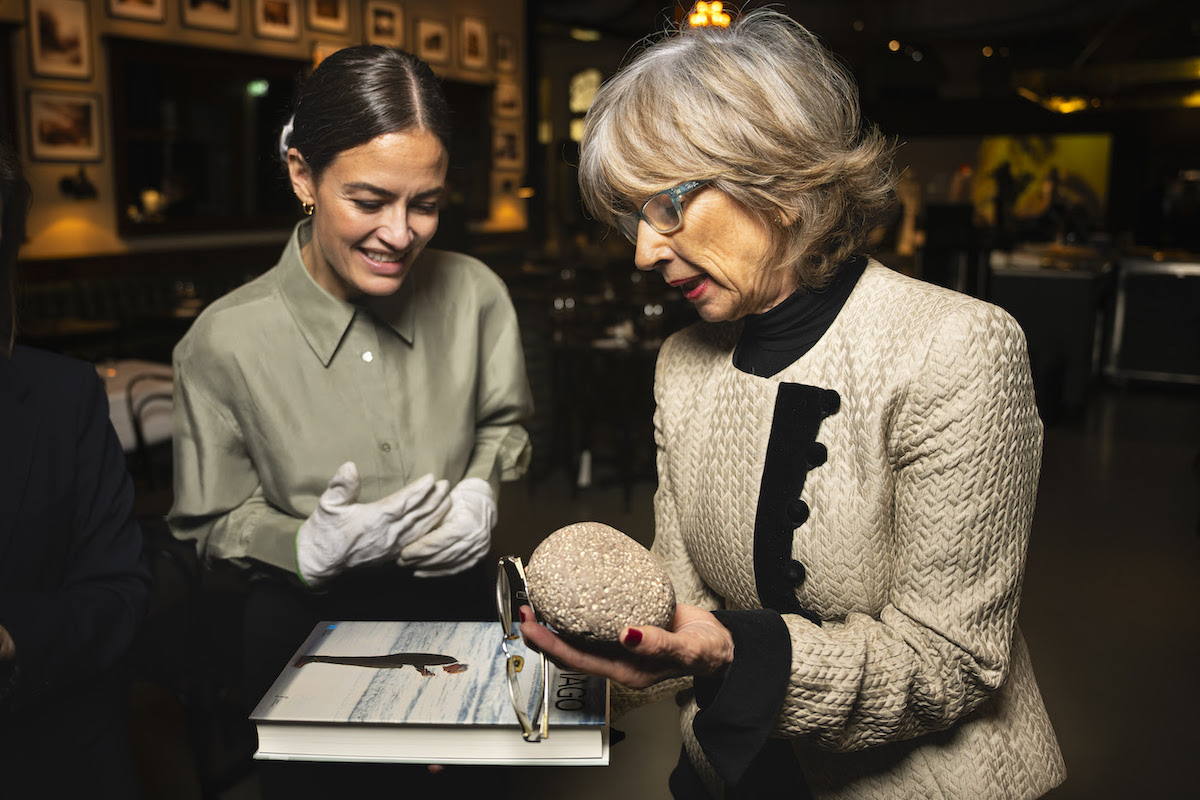Friday, March 15th 2024
Comment une pierre changea l'écriture du Prix Nobel José Saramago
The exhibition at the Nobel Prize Museum in Stockholm showcases objects that "changed the world," including Malala Yousafzai's scarf, Marie Skłodowska-Curie's measuring instrument, and manuscripts from Nobel Literature laureates Olga Tokarczuk and José Saramago. Recently, three artifacts - a stone, a pair of glasses, and a manuscript - were donated to the museum by José Saramago's foundation, fulfilling his promise made in 2004. Pilar del Río, Saramago's widow, facilitated the donation with the support of Instituto Camões and Instituto Cervantes. The exhibition sheds new light on Saramago's story through these objects, offering a different perspective on his legacy.
Gen Z and Millennials Reinventing Book Clubs
The history of book clubs dates back to 1634 when Anne Hutchinson initiated a religious discussion group. In the 1990s, Oprah Winfrey popularized book clubs, featuring contemporary and classic authors. Today, Gen Z and Millennials are reshaping book clubs, with a surge in event listings. Modern book clubs meet at various venues, including cafes and run groups, with themed and silent clubs gaining traction. Digital book clubs like TikTok Book Club and Instagram promote reading among the younger generation. These clubs offer accessibility to diverse books, personalized recommendations, and a sense of community around shared literary interests. Celebrity book clubs, such as Dua Lipa's Service95 Book Club and Reese Witherspoon's Reese's Book Club, further contribute to the rising popularity of book clubs worldwide.
Expert Reveals What Intermittent Fasting Could Be Doing to Your Brain
Intermittent fasting, a popular dietary approach for weight management, also shows potential in resetting metabolism, controlling chronic diseases, and improving overall health. Some research suggests it may offer brain energy access and protection against diseases like Alzheimer's. Ancient Greeks believed fasting enhanced thinking. Modern evidence explores how intermittent fasting, involving short periods of calorie restriction followed by normal intake, impacts the brain. Ketosis, circadian syncing, and mitochondrial improvements are mechanisms through which fasting may affect brain health, potentially preventing age-related neurodegeneration.

Analyse
Objects change the world, books connect us, and fasting awakens us. That is my quest for meaning. By reading these articles, I have drawn connections between the stone that inspired José Saramago, the book clubs of Generation Z and Millennials, and the effects of intermittent fasting on the brain. Each of these stories resonates with me because I love objects, books, and I am in search of a lifestyle that nourishes both body and mind.
Saramago's donation of personal objects to the Nobel Prize museum raises questions for me about the materiality of inspiration. Like him, I believe that certain objects, even the most mundane, carry within them the weight of untold stories. This stone, for example, is not just a pebble, but a catalyst for narratives. Similarly, the evolution of book clubs reminds me of the importance of community in the act of reading. Literary gatherings, whether physical or virtual, are not just spaces for discussion, but places for sharing and building common worlds. Lastly, the article on intermittent fasting reflects my own exploration of the limits of body and mind. Like the ancient Greeks, I am convinced that certain practices, such as fasting, can sharpen our thinking and open us up to new perspectives.
We are shaped by the objects we cherish, the communities we belong to, and the practices that define us. Each choice, each habit, each passion is a thread woven into the complex tapestry of our identity. And what if, ultimately, the quest for meaning was simply the art of recognizing and nurturing these invisible ties that connect us to the world and to ourselves?
Generation cost: 11924 tokens/0.08$